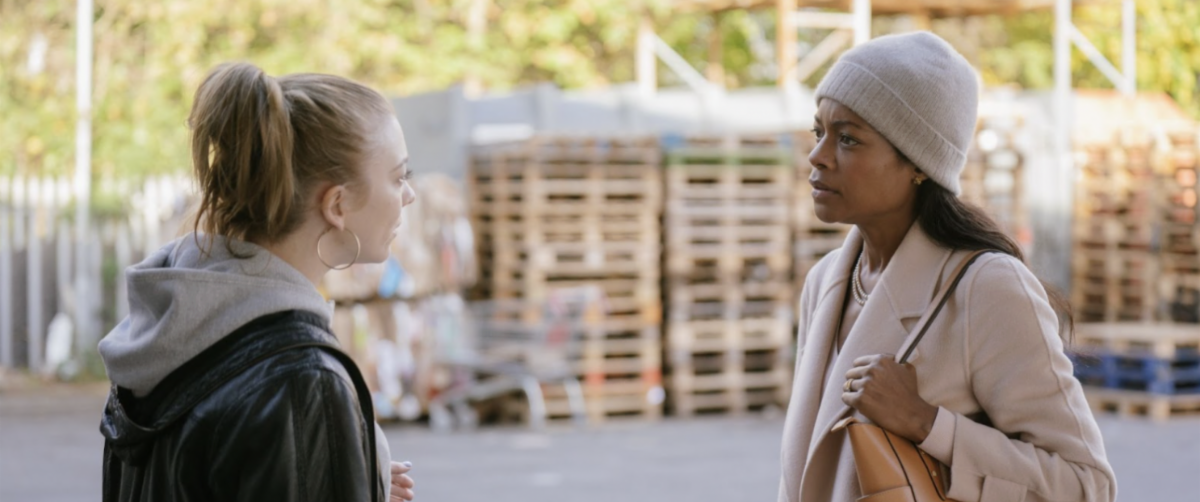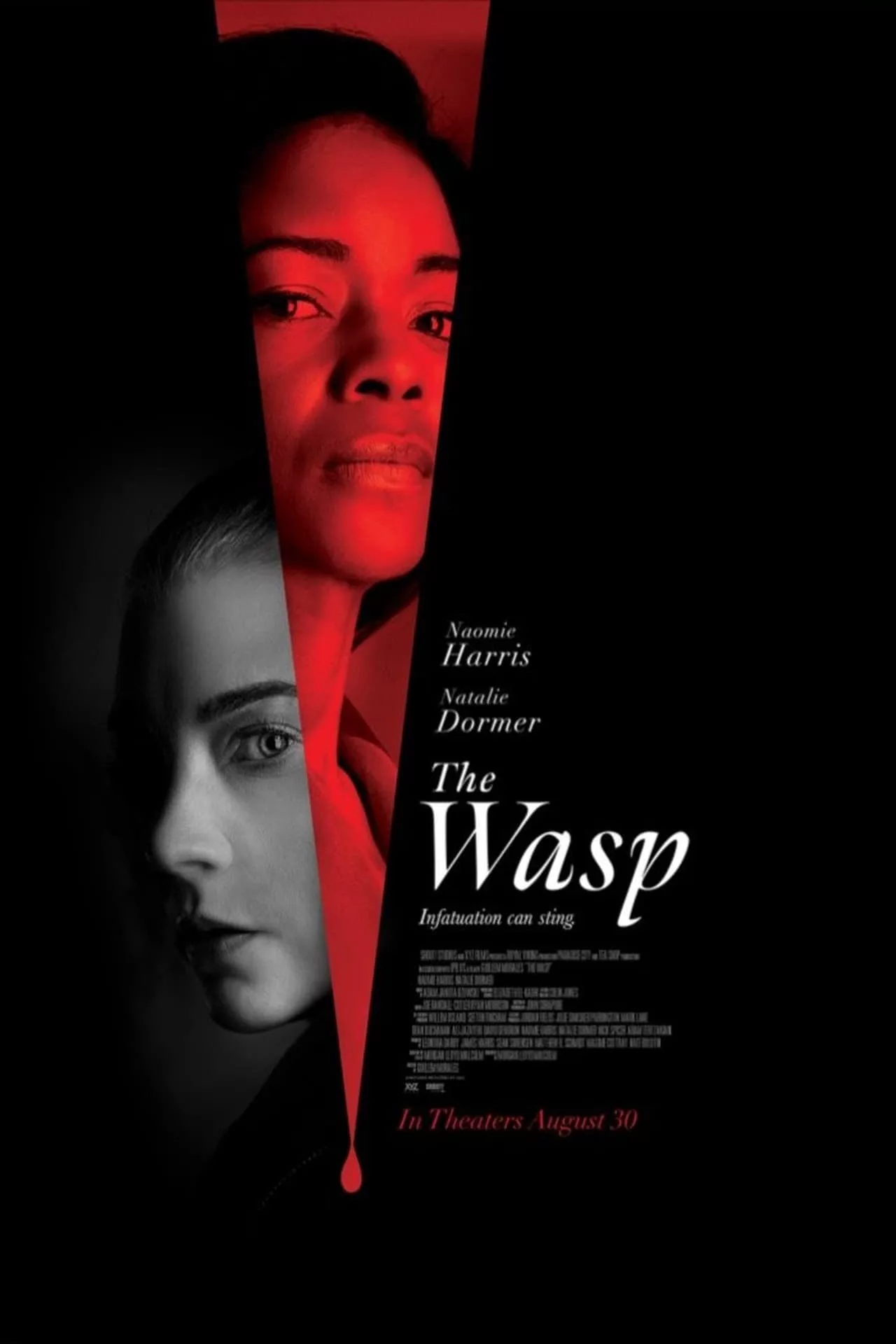Revenge is a dish best served cold, and the revenge dished up in “The Wasp” has been in the freezer for 15 years. The revenge is so cold that it’s camouflaged as something else. The film leads you to think it’s about one thing, but what we are watching is not, actually, what we think it is. The script is an airtight lair.
Based on a play by Morgan Lloyd Malcolm (who adapted it for the screen), “The Wasp” wears its theatrical origins on its sleeve. The action is “opened up,” but only slightly. There are just two main characters, and everything important takes place in one location. The film is broken up into two major scenes which require a lot from the two actors. The character arcs are extreme. Naomie Harris and Natalie Dormer give exhilarating performances, singly and together, but mostly together. The actors’ work is a testament to the script, but it’s also a testament to director Guillem Morales, who treats this claustrophobic subject matter in an expansive way, pushing outwards and downwards to give the characters space. It’s like the bottom drops out. The trailer doesn’t give much away. What happens is shocking, but it makes perfect horrible sense once the facts are revealed.
Heather (Harris) lives in a beautiful townhouse with her husband (Dominic Allburn), who is rarely home, and he’s irritable and rude when he is. He stays out till all hours of the night without a word of explanation. Heather suspects something is going on. A fertility app on her phone buzzes notifications at her, a reminder that her marriage is pretty much dead. She is already on edge because wasps are in her kitchen, buzzing around, the sound infiltrating her peace of mind. There’s a nest somewhere; she knows it. She decides to take matters into her own hands, in more ways than one. Heather thinks back to a traumatic event in childhood, when she witnessed her friend Carla kill a wounded pigeon with a rock. Heather hasn’t spoken to Carla in years, but she figures anyone who could do that could also probably murder her husband, no problem. She reaches out to Carla (Dormer), now pregnant for the fourth time, working at a supermarket, and struggling financially. The two haven’t spoken since grade school.
Carla wants nothing to do with it, but the money Heather offers is persuasive. Heather seems helpless and eager-to-please, maybe even a little intimidated by the rough street-smart Carla. Carla is in dire straits and thinks Heather is a naive silly woman living in a dream-world of privilege. Heather’s ideas for the murder of her husband are ridiculous, Carla thinks. At one point, Heather says, un-ironically, “I want to get rid of this man but I want to make sure every other area of my life remains unaffected.” Is this woman even for real? Carla takes charge. Carla is a formidable figure, in her puffy jacket and big pregnant belly, stalking ahead of Heather at such a pace Heather has to run to keep up. Heather is immaculate and tailored, Carla is not, but it’s very clear who is in charge.
“We’re so different,” Heather says to Carla. Carla squints at her, asking, “Are we?”
Some of the symbolism—the wasps, for one—felt heavy-handed at first, or, at the very least, too obvious. The film opens with Heather’s wasp obsession, and the set-up was over-determined (exacerbated by the framed portraits of horrifying spiders lining the hallway of Heather’s townhouse). The portraits loom over the action unfolding in the room beyond, reminding us of what is going on: the women are weaving a web for Simon. They hope they will not be caught in their own web. Carla pokes holes in Heather’s plan. There’s a class element in all of this. Heather is ingratiating with Carla and there’s condescension there, an assumption that of course the working-class Carla would know about “such things”. Heather will defer to her “expertise”. Each character condescends to the other. Once the second major scene begins, the entire atmosphere has changed, and so, too, have the symbols. Suddenly the wasps, and the spiders on the wall, take on deeper connotations, revealing themselves in their totality.
The symbols have to do too much of the heavy lifting but keeping these symbols in operation—as an active force in the story—was an impressive feat, particularly how they transformed. As impressive as the script is, the film rides on Harris’ and Dormer’s performances. Harris, nominated for an Academy Award for her painful performance in “Moonlight,” shows dazzling range. Her Heather is wound up tight, her knee-jerk politeness covering up total chaos. There are moments when she looks at Carla, and her eager-to-please smile and guidance-counselor behavior are so inappropriate to the situation, it seems like a locked psych ward would be the best option for her. But Heather has a secret, and the secret is running the show. Harris is completely in charge of how and when we see that secret. A performance like this takes great control. Dormer is Harris’ equal, coming back at her with contempt, confusion, impatience.
Watching Harris and Dormer create this event together is why I love going to the movies. In that elegant, horrible townhouse, anything could happen. And anything does.




















